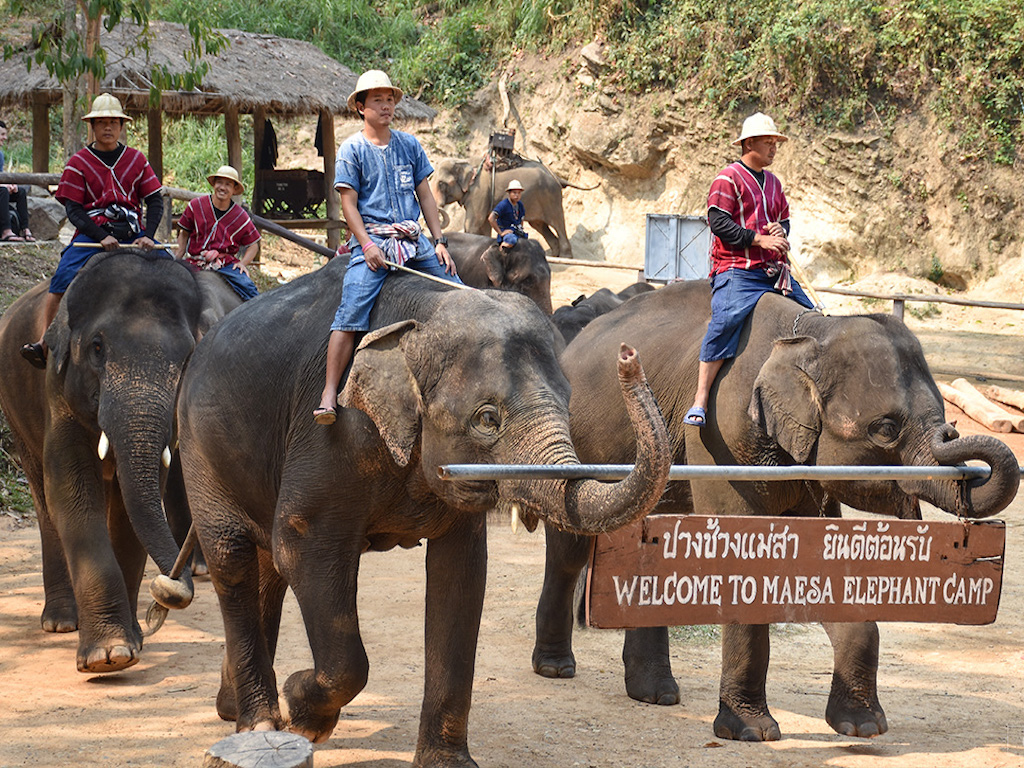3 Mins Read
While the majority of the headlines about the coronavirus has been bleak, there have been a couple positive stories to emerge from the pandemic as well. The latest sign of hope comes from Chiang Mai in Thailand, where Maesa Elephant Camp has been forced to allow exploited elephants to roam freely on their grounds due to the decimated tourism industry as a result of the coronavirus.
The outbreak of the coronavirus around the world has led border closures, travel restrictions and social distancing measures – all of which have tourist visits to plummet. While the slowdown of daily life has not gone without pain for most of us, it has brought about relief for many elephants in the northern city of Chiang Mai. Dozens of elephants subjected to years of abuse by Maesa Elephant Camp, a tourist hotspot in the city, have just been allowed to roam freely on the park grounds for the first time in 44 years.
Elephants at the camp had been exploited for carrying tourists on their backs using heavy wooden and metal seats that are strapped to their backs throughout the day. With the park now closing its doors due to the coronavirus, the owners have decided to remove these massive carriages from the backs of 78 elephants, allowing them to roam freely within the camp grounds.
Harsh methods are often used to train wild elephants to carry a human on its back, and the process is often referred to as “crushing” as the animals are subjected to terrorising tactics such as beatings until they accept being strapped and used by tourism businesses.
The owners added that their decision to remove the seats from the elephants will be permanent – the animals will not be subjected to the cruel activity again once the pandemic is over. Instead, visitors to the park will be allowed to observe the animals in their natural habitat.
“We are not planning to put the seat supports back on the elephants, even if we can operate again…We will welcome tourists to enjoy learning about the elephants’ ways of life naturally instead of using them to entertain the tourists,” said camp director Anchalee Kalampichit.
With Maesa Elephant Camp taking action against their exploitative operations, there is hope that more camps across Thailand and the world will be prompted by the coronavirus pandemic to also put an end to animal abuse and endangering species.
According to animal welfare charity World Animal Protection (WAP), Thailand uses twice as many elephants in tourism – from elephant riding to circuses and “selfie stations” – as all the other countries combined, with the vast majority being captured from the wild, trained to perform through abuse and held captive in cruel conditions.
Other positive stories emerging from the coronavirus include news that the Shedd aquarium in Chicago has closed due to the coronavirus, so the staff at the facility decided to let some of their penguins roam freely in the grounds.
Want to help save animals in Asia? Here are 8 online petitions that you can sign to make a difference.
Lead image courtesy of Maesa Elephant Camp.




